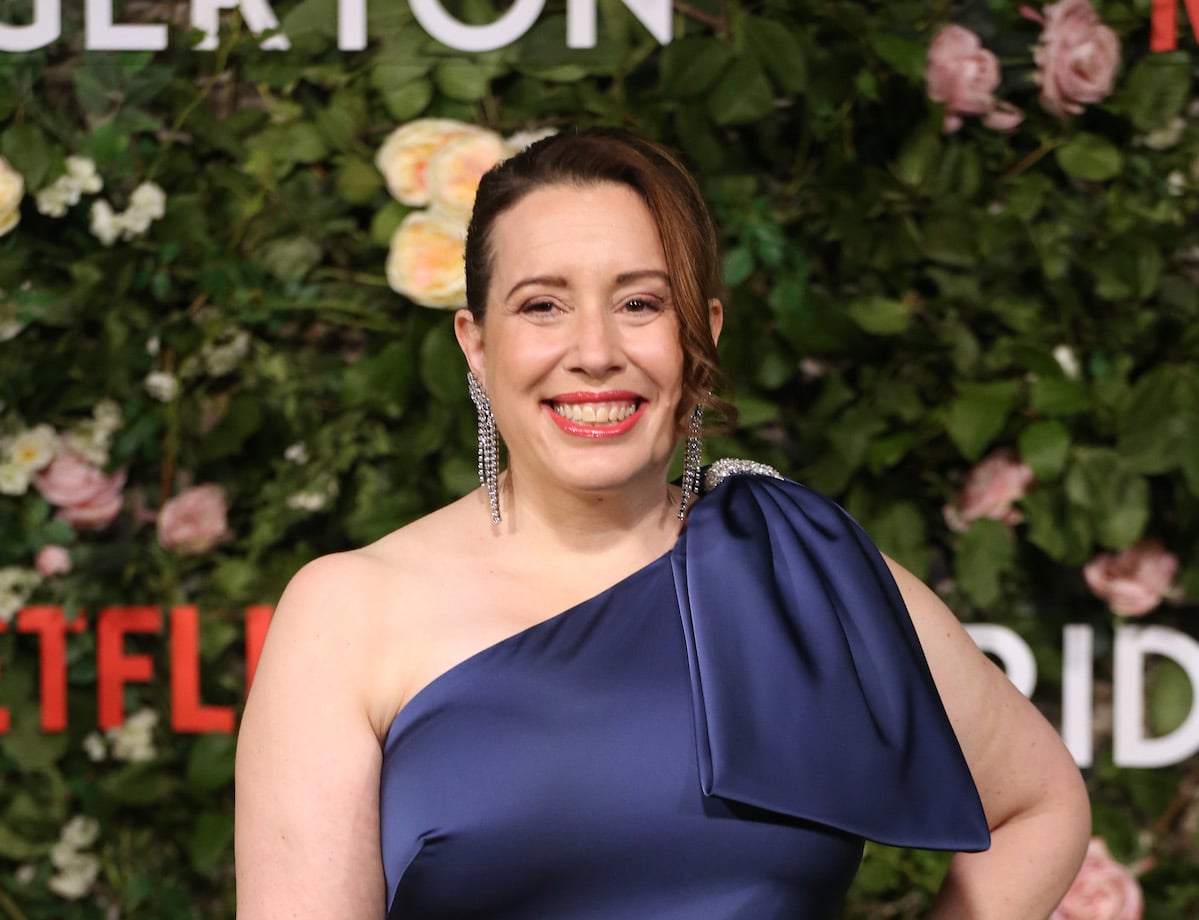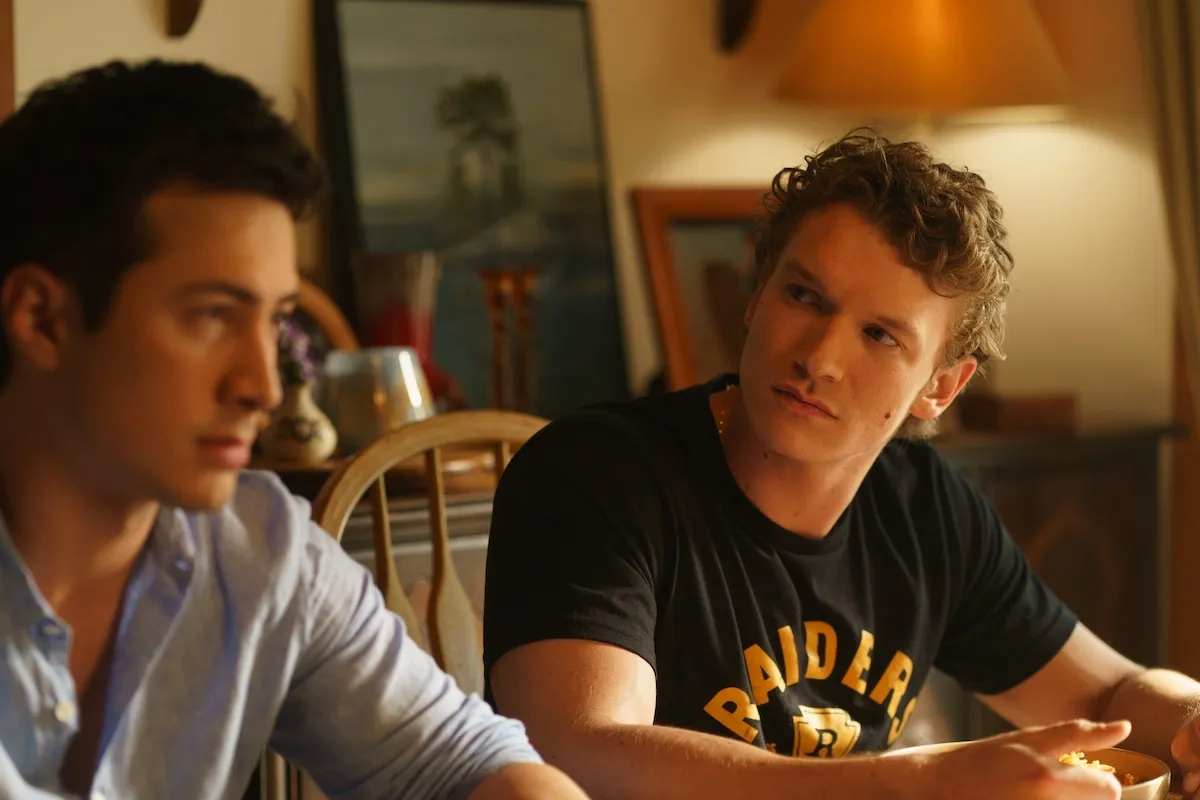
‘Bridgerton’: Julia Quinn Doesn’t See Eloise as the Only Feminist in the Bridgerton Family
Bridgerton has been an overwhelming success for Netflix, and fans show no signs of letting up on their fervor for the reimagining of the Regency era and its salacious relationships. While they wait for Season 3 (which promises to follow the relationship between Colin and Penelope), they’ve got plenty to speculate about and ponder over.
As fans are dissecting the show and what could come next, writer Julia Quinn (who penned the bestselling source material) has shared some thoughts about the feminist principles embodied in the characters.
Eloise Bridgerton is an outspoken feminist
The obvious illustration of feminism in the show is Eloise Bridgerton, the outspoken and hot-headed young daughter of the Bridgerton crew. Eloise uses her voice to display her displeasure about the courtship and dating rituals expected of her, and she proclaims these objections loudly and often.
In Season 2, Eloise’s personal feminism took on a more activist bent. With the introduction of Theo (a character who is not in the original novels), Eloise is invited outside of her bubble of privilege and into a grittier, more active fight for equality. Eloise comes across Theo because he works in the print shop she visits while trying to uncover more about the mysterious Lady Whistledown. Theo shares a pamphlet with Eloise about women’s rights and the fight for more freedom, and Eloise’s long-standing views about women’s equality get broadened — and complicated as she faces her own privilege.
Eloise is not the only Bridgerton who displays feminist ideals

While Eloise is the most outspokenly feminist of the bunch, she’s not alone in upholding feminist ideals. Many see Daphne — Eloise’s older sister and the central character of Season 1 — as a clear candidate for feminist illustration in the series.
For her part, Quinn is outspoken about having intentionally written her characters to be feminist. Speaking with Cosmopolitan, she explained, (translated from Spanish), “I believe these books are very feminist, in them I wanted to honor all women and their decisions. For me, feminism is having the power to decide. It’s not about what choices you make, but about having the opportunity to choose.”
While she admits that Eloise is an obvious symbol of someone exercising choice, she also points to Daphne’s more subtle insistence on living life by her own rules: “Daphne, a much more conventional character, also makes her own decisions. Not all of us can be the woman who takes the flag and leads the march, but for every banner woman, there are thousands of others who support and sustain her.” Daphne enacts choice in her relationship by seeking out information about sex and pregnancy, refusing to wait on a man for a proposal, and building a life on her own terms.
Quinn even sees these more subtle versions of feminism as a way to reclaim the stories that have been lost to a history that erased them: “At that time, if you were a woman to go down in history, you had to be really extraordinary, one in a million, because they were made invisible. But I also think it’s important the ones who don’t go down in history and I wanted to tell their stories.”
Fans are weighing in on what they hope to see from feminist ‘Bridgerton’ characters
Debates over which characters adequately represent feminism mirror debates over how real-life feminists should live out their ideals. The multiplicity of views on the topic are showing up in fan debates about how the Bridgerton characters can or should develop in future seasons.
A Reddit thread, for example, has a post from user GCooperE taking issue with those who want to see Eloise “mature” to be less outspoken. “So a feminist who is only a feminist as long as no one is bothered by it,” the author writes. “This would not be Eloise ‘maturing’. This would be Eloise submitting. To mature as a feminist, moving past her teenage years of experimenting and pushing boundaries (which is what those years are for), would be for Eloise to start being practical about it.”
Many in the comments agree, but they do hope that Eloise becomes more sympathetic to the women in her social circle who feel — for whatever reason — unable to be as brash and bold as Eloise is in pursuing her equality. One commenter points out, “Eloise approaches feminism from a textbook experience, rather than through acknowledging the real struggles that some women experience.”


